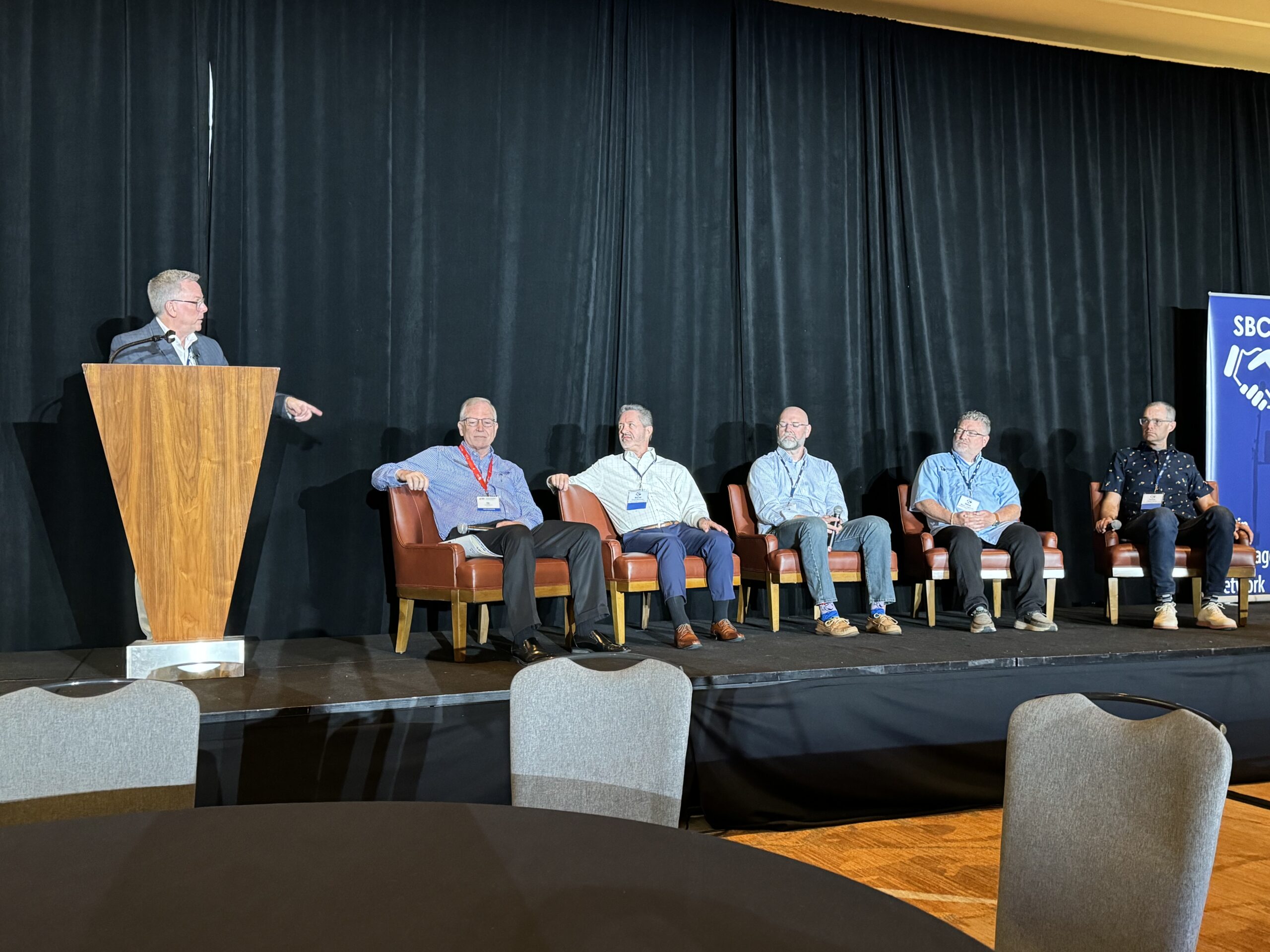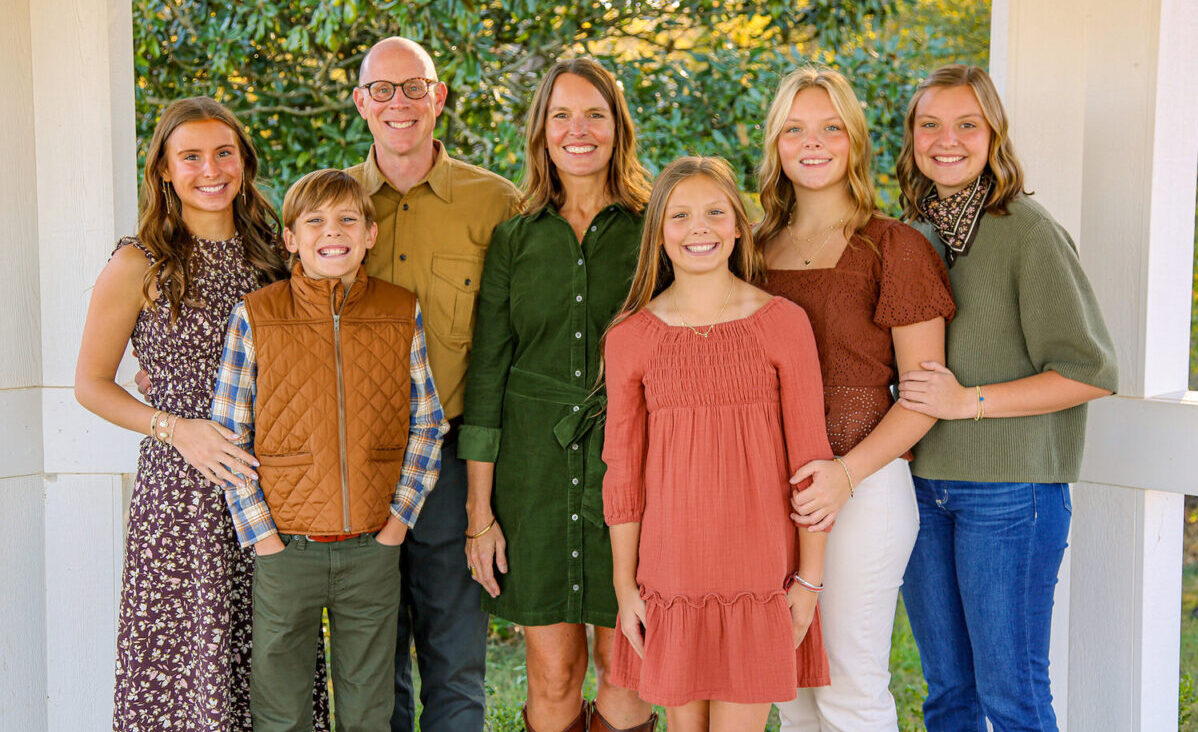For associational mission strategists/directors of missions, the need to network and fellowship comes around pretty often. Most thrive on having multiple relationship networks which can be leveraged to help member churches in their associations.
One of these networks is the Southern Baptist Conference of Associational Leaders, which meets prior to the annual meeting of the Southern Baptist Convention. About 400 leaders met together this year.
Ray Gentry, president of SBCAL, said the organization’s goals are to equip, encourage and inspire leaders.
RELATED: Check out more stories related to 2024 SBC Annual Meeting here.
“We believe they benefit from our conference as much as pastors do from the SBC Pastors Conference,” Gentry said.
Supportive brotherhood
Gentry added that this year’s SBCAL also featured a ministry fair, 15 breakout sessions, vibrant worship and plenary speakers. But most AMS/DOMs seemed to be really thriving on the networking occurring in the room.
“They will realize even more the importance of their role and that they have a brotherhood that supports them,” Gentry said.
During the conference, messages were delivered by pastor Heath Lambert of FBC Jacksonville, Florida; Josh Benton, vice president of Send Relief North America; Al Mohler, president of Southern Baptist Theological Seminary; and Mac Lake, CEO of the Multiply Group. An added benefit was an opportunity to meet the SBC presidential candidates in a group forum.
Mohler noted that his first director of missions was a tremendous help and invested in him, a 22-year-old seminarian and one of a long line of seminary students serving small churches in that association. Sharing his perspective on the future of “Convictional Leadership,” Mohler said he was pleased with the current seminary students at Southern.
“As a grandfather now, matriarchs and patriarchs (in the churches) look to the future,” he began. “These seminary students will possibly be my grandkid’s pastors.”
He then quipped, “They better be good!”
Encouraging bivocational pastors
Dennis Culbreth, an AMS from Chattanooga, Tennessee, said he was especially interested in the breakouts on church revitalization. He seeks to encourage 108 churches in Hamilton County Baptist Association. Pastors and church leaders turn to the association for help, he said, and he spends a lot of time meeting and encouraging the bivocational pastors in particular.
Culbreth said there was one pastor that stood out in his mind that has benefited especially as a result of relationships and networking. This pastor served 15 years in a small church. He called Culbreth, and they went to lunch.
During the meal, this pastor said he was going to quit the next Sunday. Culbreth asked why, to which the pastor said, “I am tired.” It turned out that the pastor and his wife were pretty much doing every task in the church — not only preaching but music, janitorial work, every event. The pastor and his wife were expected to do everything, and they were burned out.
Finding balance
Culbreth offered to go the church’s deacons and make a proposal. He asked the deacons if the pastor could be granted a break. Culbreth cleared his calendar and preached at the church for a month as the pastor rested and healed. Some changes were made, and the pastor is still serving in that same church today.
Culbreth and his wife, Marybeth, are a team of encouragers. She said the spirit was sweet in the sessions provided for the wives of AMS/DOMs. She helps the wives of pastors in Hamilton County get together for fellowship and Bible study. She enjoys the role of AMS wife because she gets to observe so many different ministries and encourage leaders.
Another AMS, Jim Walls from southeast Indiana, said this was his fourth year to attend the SBCAL conference. He has 50 churches in nine counties located north of the Louisville, Kentucky, area.
Walls said the best days he has is when he talks to a pastor and hears “that someone got saved.”
Team-based leadership
Gentry said there are about 1,100 associations in the SBC with about 900 of them led by AMS/DOMs, some full-time and many part-time. About 200 are led by volunteers such as the associational moderator. He is seeing more and more associations where an AMS is shared by two associations in order to maintain financial support for the association.
“I have seen more than one consolidation/merger work successfully. I am an advocate for that. Surprisingly, however, I know of very few mergers. A number of associations have switched from a full-time AMS/DOM to a bivocational one,” Gentry said.
He noted that some are moving to a team-based leadership where tasks are divided among leaders.
Gentry concluded, “Pastors and churches are going to ‘associate.’ The only question is with who and how. The Baptist association is the oldest form of Baptists associating and doing inter-church cooperation. The first Baptist association in America was the Philadelphia Association, founded in 1707, long before state conventions or the SBC was formed.”
There are just over 700 AMS/DOMs who are members of SBCAL.
To view more photos from this event, click here.
Closing thoughts
Several AMS/DOMs recounted the value of the SBCAL conference in hallway interviews:
Tom Firasek, AMS in Metro East Baptist Association, Swansea, Illinois: “The best thing is to be exposed to different ministry tools I know I need.” He’s been the AMS for almost a year, having served previously as an associate AMS in the St. Louis area in Missouri and Illinois.
Jim Plymale, DOM in Franklin County Baptist Association, Union, Missouri: “We are an association of small towns, farming communities on the western edge of the St. Louis metro. The pastors tend to turn to us for fellowship and information. I think it is important to be friends with the pastors and members of the association.”
Bob Feeler, AMS in Twin Rivers Association, northern edge of the St. Louis area: “I am learning to better connect with people on social media, emails and texting. Faster connections are needed.” He said his churches are not as used to doing things together except for camps. He is trying to enact change in that area.
EDITOR’S NOTE — Richard Nations is the associational mission strategist for the Sandy Creek Baptist Association in Murrayville, Illinois. He is also a freelance writer for The Baptist Paper, The Pathway and the Illinois Baptist.










